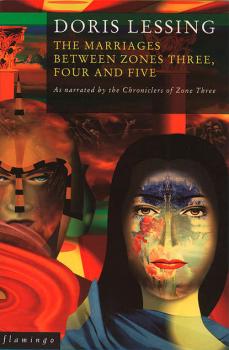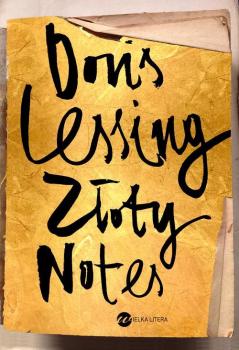ТОП просматриваемых книг сайта:















Doris Lessing
Список книг автора Doris LessingАннотация
From Doris Lessing, winner of the Nobel Prize for Literature, the fifth and final instalment in the visionary novel cycle ‘Canopus in Argos: Archives’.‘The Sentimental Agents …’ is set in the declining Volyen Empire as the empires of Sirius and Shammat compete to overwhelm it with rhetoric and false sentiment. The Canopean Empire deploys covert agents to help the Volyens resist. But one of these agents, Incent, succumbs to ‘Undulant Rhetoric’, and Agent Klorathy must go to Volyen to help him see through the empty words that have beguiled him.Once more employing alien races to identify human failings, Lessing uses social and political satire to show how we misuse speech (and speeches) and delude ourselves with self-aggrandizing notions about the primacy of emotion. Her renowned insight into human behaviour goes hand in hand here with a vein of humour that sees her writing in the tradition of Voltaire and Swift.
Аннотация
From Doris Lessing, winner of the Nobel Prize for Literature, this is the first instalment in the visionary novel cycle ‘Canopus in Argos: Archives’.The story of the final days of our planet is told through the reports of Johor, an emissary sent from Canopus. Earth, now named Shikasta (the Stricken) by the kindly, paternalistic Canopeans who colonised it many centuries ago, is under the influence of the evil empire of Puttiora. War, famine, disease and environmental disasters ravage the planet. To Johor, mankind is a ‘totally crazed species’, racing towards annihilation: his orders to save humanity set him what seems to be an impossible task.Blending myth, fable and allegory, Doris Lessing’s astonishing visionary creation both reflects and redefines the history of our own world from its earliest beginnings to an inevitable, tragic self-destruction.
Аннотация
From Doris Lessing, winner of the Nobel Prize for Literature, this is the third instalment in the visionary novel cycle ‘Canopus in Argos: Archives’.Ambien II is one of the Five – the highest level of the Sirian Colonial Service and the hidden rulers of the Sirian Empire for thousands of years. She is an accomplished administrator, a mover of populations and controller of events – and lives in the certain knowledge that the Sirian Empire is the most advanced in the galaxy.As she narrates her story, we follow the profound changes in Ambien II as she realizes that the rival Canopean Empire is superior to Sirius in every way, and is the true ruler of the galaxy. She begins to understand, and accept, that she will be used by her Canopean opposites, announcing their wisdom to her own people, whose denial of this revelation is as fierce and determined as her own would once have been.Continuing her work in the science-fiction genre, Doris Lessing uses these worlds to set out her view of mankind and history, of her conviction that to survive we must learn to open our minds to ways of thinking.
Аннотация
From the winner of the Nobel Prize for Literature, this is the fourth instalment in the visionary novel cycle ‘Canopus in Argos: Archives’.The handsome, intelligent people of Planet 8 of the Canopean Empire know only an idyllic existence on their bountiful planet, its weather consistently nurturing, never harsh. They live long, purposeful, untroubled lives.Then one day The Ice begins, and ice and snow cover the planet’s surface. Crops and animals die off, and the people must learn to live with this new desolation. Their only hope is that, as they have been promised, they will be taken from Planet 8 to a new world. But when the Canopean ambassador, Johor, finally arrives, he has devastating news: they will die along with their planet. Slowly they come to understand that their salvation may lie in the creation of one Representative who can save what is most essential to them.Lessing has written a frightening and, finally, hopeful book, a profound and thought-provoking contribution to the science-fiction genre the novel generally.
Аннотация
From Doris Lessing, winner of the Nobel Prize for Literature, this is the second instalment in the visionary novel cycle ‘Canopus in Argos: Archives’.This is the story of the kindly Queen of Zone Three, who rules a land free of all harshness, and her forced marriage with the soldier-king of Zone Four, which is hierarchic, disciplined, inflexible, dutiful. This apparently difficult marriage, unwanted by both, requires a compromise between impulse and reason, between instinct and logic.Ben Ata learns to accept and then to love the ruler of Zone Three and her alien ways; and she learns to love and to need him. But when the Queen is commanded by the Providers to return to her own realm, she must obey, shattering though it is to leave her husband and child. Ben Ata, in turn, is ordered to marry the savage beauty who rules Zone Five, a land that both unites and reverses the other two Zones.In ‘The Marriages …’ Doris Lessing uses science-fiction brilliantly to investigate the conflict between men and women. Once again, invented planets allow her to deploy her unillusioned knowledge of the real world of the reader.
Аннотация
The second volume of the autobiography of Doris Lessing, winner of the Nobel Prize for Literature.‘Walking in the Shade’ begins in 1949, as Doris Lessing arrives in London with nothing but her young son and the manuscript of her first novel. With humour and clear-sightedness, she records her battles of the next decade: her involvement with communism, her love affairs, her struggle with poverty, the difficulties she faced as a young single mother.But as well there is the success of that first novel, ‘The Grass Is Singing’, and meetings with personalities and opinion-makers – Kenneth Tynan, John Osborne, Bertrand Russell and others.Describing, too, the genesis of ‘The Golden Notebook’, this book sees Lessing emerge as one of the most exciting, and groundbreaking, novelists of the post-war generation, and one of the twentieth century’s great writers.
Аннотация
From Doris Lessing, winner of the Nobel Prize for Literature, the sequel to one of her most celebrated novels, ‘The Fifth Child’.‘The Fifth Child’, Doris Lessing’s 1988 novel, made a powerful impact on publication. Its account of idyllic marital and parental bliss shattered by the arrival of the feral fifth child of the Lovatts made for unnerving and compulsive reading.That child, Ben, is the central character of this sequel, which picks up the fable at the end of his childhood and takes our primal, misunderstood, maladjusted teenager out into the world. He meets mostly with mockery, fear and incomprehension, but with just enough kindness and openness to keep him afloat as his adventures take him from London to the south of France and on to South America in his restless quest for community, companionship and peace.Lessing employs a plain, unadorned prose fit for fables; again, we have a childlike perspective at the heart of the book; again, the world in all its malevolence and misapprehension swirls around at the edge, while, occasionally, a strong character steps forward to try to set a good example.
Аннотация
From the winner of the Nobel Prize for Literature, Doris Lessing, a short story about a woman’s gradual drift outside the limits of society.An old woman, with gipsy blood, begins to find the conventions of society stifling – when her husband dies, and her children leave home, she embraces a marginal, unconventional existence, accompanied by her faithful cat.‘An Old Woman and Her Cat’ brilliantly combines Doris Lessing’s unforgiving examination of our society – and those it cannot accommodate and ulitmately fails – with a wonderful portrait of her favourite animal – the cat.This story also appears in the collection The Temptation of Jack Orkney.










